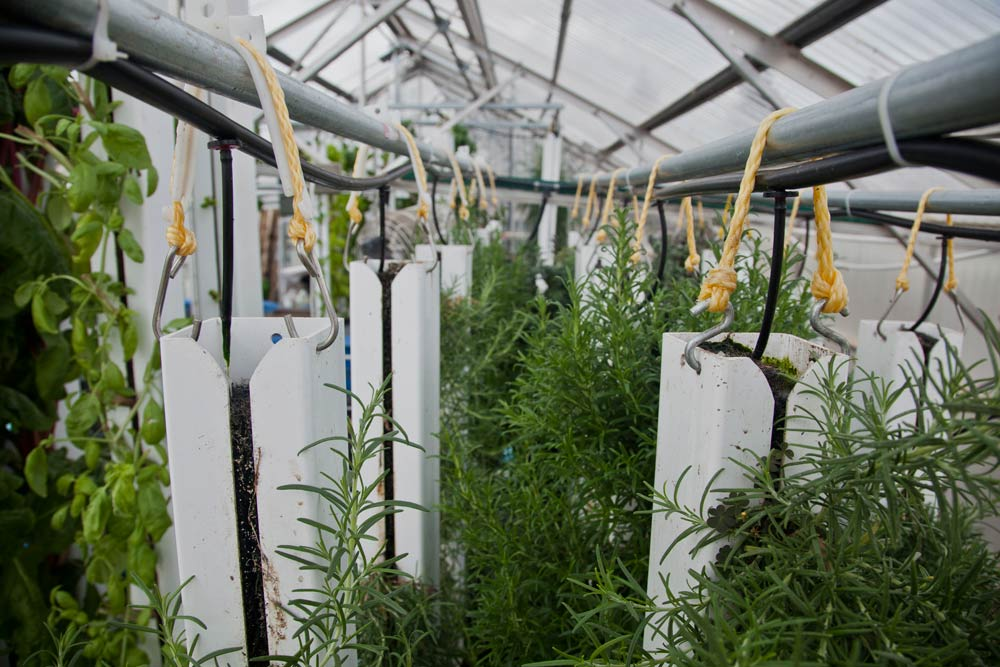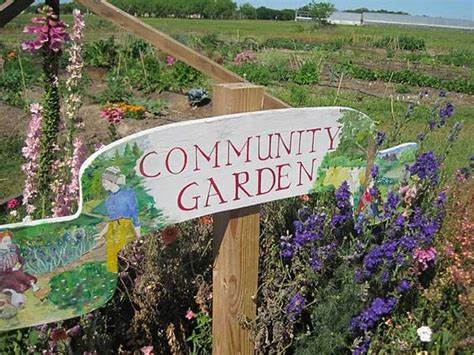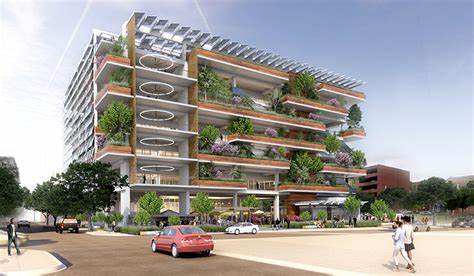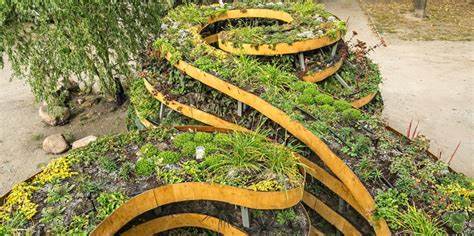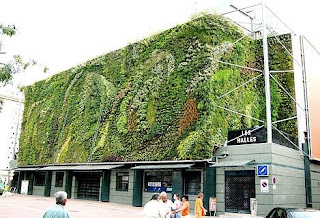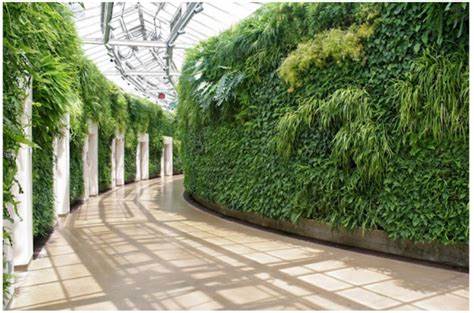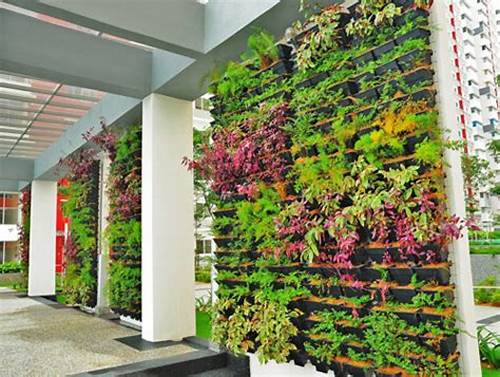Vertical Farming: Illuminating the Future of Agriculture Introduction Vertical farming has emerged as a revolutionary concept in modern agriculture, offering a sustainable solution to the growing global food security challenge. As the population continues to increase, the need for efficient and resource-conscious farming methods becomes increasingly crucial. In this article, we will delve into the significance of proper lighting and climate control in vertical farms and explore how these factors contribute to the sustainability of this innovative farming practice. Historical Background Vertical farming has a rich history that can be traced back to the ancient Babylonians and their hanging gardens.…
Author: sohailkhan2k22
Maximizing Yield and Efficiency: The Importance of Crop Selection in Vertical Farming Introduction Vertical farming is a revolutionary solution in modern agriculture that addresses the challenges of limited space and environmental sustainability. This article provides an overview of vertical farming, emphasizing its importance and benefits. Additionally, it highlights the crucial role of crop selection in ensuring the success of vertical farming. Historical Background The concept of vertical farming has evolved over time, with its origins dating back to ancient civilizations. However, recent breakthroughs and milestones in vertical farming technology have propelled its popularity and potential. Key Concepts and Definitions Vertical…
The Poetry of Vertical Gardens: Expressing Nature in Urban Spaces Introduction Vertical gardens have gained significant attention in recent years due to their unique ability to bring nature into urban environments. This article explores the concept of vertical gardens and their relevance in the context of urbanization and environmental consciousness. Historical Background Vertical gardens can be traced back to ancient civilizations, with one of the most famous examples being the Hanging Gardens of Babylon. Throughout history, notable individuals and movements have contributed to the development of vertical gardens, shaping their evolution into the form we see today. Key Concepts and…
Vertical Gardens for Social Equity Access to greenery is essential for the well-being of individuals and communities, regardless of privilege. In today’s urbanized society, limited space poses challenges to providing green spaces for all. Vertical gardens have emerged as a solution to promote social equity by addressing these challenges. This article explores the concept of vertical gardens and their significance in improving access to green spaces and addressing social equity issues. Historical Background: Origins of Vertical Gardens Vertical gardens have a rich history dating back to ancient civilizations. One of the earliest examples is the Hanging Gardens of Babylon, which…
Vertical Gardens: Addressing Food Deserts in Cities Introduction Cities across the world are facing the challenge of food deserts, areas where residents have limited access to fresh and healthy produce. In this article, we will explore the concept of vertical gardens and their potential to revolutionize the food landscape in urban areas. By bringing fresh produce to cities, vertical gardens offer a promising solution to combat food deserts and improve the overall health and well-being of residents. Historical Background Vertical gardens, also known as green walls or living walls, have a rich history dating back to ancient civilizations such as…
Vertical Gardens and Community Engagement: Building Green Neighborhoods for a Sustainable Future Introduction Urbanization and environmental degradation are pressing challenges in today’s world. To address these issues, the concept of vertical gardens and community engagement has emerged as a promising solution. This article explores the relevance and importance of this topic in the context of environmental sustainability and community development. Historical Background Vertical gardens have a long history, with examples found in ancient civilizations such as the Hanging Gardens of Babylon. However, it is in recent years that vertical gardens have gained traction in community settings. Pioneers like Patrick Blanc…
Vertical Gardens as Living Memorials and Commemorative Spaces Introduction Vertical gardens have gained popularity as unique and innovative ways to create living memorials and commemorative spaces. These green installations provide an alternative to traditional memorial sites, offering numerous benefits for individuals and communities. In this article, we explore the historical background of memorial and commemorative spaces, the evolution of vertical gardens in this context, and the key concepts and definitions associated with these living memorials. Historical Background Memorials and commemorative spaces have always played an important role in society, serving as places of remembrance and reflection. From ancient monuments to…
The Importance of Vertical Gardens in Post-Pandemic Urban Planning Introduction In the wake of the COVID-19 pandemic, urban planners are reevaluating the design and infrastructure of cities to create healthier and more sustainable environments. One concept that has gained significant attention is vertical gardens. These innovative installations not only enhance the aesthetic appeal of urban areas but also offer numerous benefits for both residents and the environment. Incorporating vertical gardens into post-pandemic urban planning can contribute to a greener, more sustainable future. Historical Background Vertical gardens, also known as living walls or green walls, have a rich history dating back…
Vertical Gardens: Enhancing Sustainable Tourism Destinations Introduction Vertical Gardens and Sustainable Tourism Destinations have gained significant attention in recent years due to their positive impact on the environment and local communities. This article aims to explore the historical background, key concepts, main discussion points, case studies, current trends, challenges, controversies, future outlook, and the overall significance of Vertical Gardens in sustainable tourism destinations. Historical Background Vertical Gardens have a rich history that dates back to ancient civilizations. The Hanging Gardens of Babylon, one of the Seven Wonders of the Ancient World, showcased the early development of vertical gardening techniques. In…
The Evolution of Vertical Garden Technology: Enhancing Urban Environments and Sustainability Introduction Vertical garden technology has revolutionized urban landscaping by providing innovative solutions for limited space and environmental challenges. This article explores the historical background, key concepts, and advancements in this field, while also aiming to provide more comprehensive information to readers. By addressing the main discussion points, case studies, current trends, challenges, and future outlook, we can showcase the potential benefits of vertical gardens in addressing urbanization and climate change. Historical Background The concept of vertical gardens dates back centuries, with ancient civilizations using trellises and ivy-covered walls for…
The Future of Sustainable Agriculture: Exploring the Potential of Vertical Gardens Introduction The concept of vertical gardens has gained significant attention in recent years due to its potential to revolutionize sustainable agriculture. This article delves deep into the topic, exploring the relevance and importance of vertical gardens in addressing the challenges faced by modern agriculture. Historical Background Vertical gardens have a rich history that dates back centuries. Originating in ancient civilizations such as the Hanging Gardens of Babylon, these innovative structures have evolved over time. From the use of trellises and espalier techniques to modern-day green walls, the development of…
Vertical Gardens in Horticultural Education: Exploring Benefits and Implementation Introduction Vertical gardens have emerged as a revolutionary concept in horticultural education, presenting a paradigm shift in the way we approach gardening and sustainability. This article delves into the relevance and importance of vertical gardens, highlighting their interesting and beneficial aspects. Historical Background The history and evolution of vertical gardens can be traced back to the ancient Hanging Gardens of Babylon, one of the wonders of the ancient world. However, it is Patrick Blanc, a French botanist, who revolutionized the concept in the late 20th century with his innovative approach to…
Vertical Gardens and the Philosophy of Slow Living Introduction Vertical gardens have gained popularity as an innovative solution to limited space in urban environments, bringing nature to concrete jungles and promoting sustainability and a deeper connection with nature. In parallel, the philosophy of slow living has emerged as a response to the fast-paced and consumer-driven culture, encouraging individuals to embrace a mindful and sustainable lifestyle. This article explores the concept of vertical gardens and delves into the philosophy of slow living, discussing their relevance and importance in today’s world. Historical Background Vertical gardens, also known as green walls or living…
The Art of Vertical Garden Maintenance: Craftsmanship and Care Introduction Vertical garden maintenance is crucial for ensuring the longevity and aesthetic appeal of these unique green spaces. This article explores the art of vertical garden maintenance and highlights its relevance and importance. Historical Background Vertical gardening has a rich history that dates back centuries. From the Hanging Gardens of Babylon to modern-day living walls, the concept of vertical gardens has evolved over time. As the popularity of vertical gardens increased, so did the need for proper maintenance techniques to keep them thriving. Key Concepts and Definitions To fully understand vertical…
Vertical Gardens: Transforming Desolate Spaces into Green Oases Introduction Vertical gardens have gained popularity in recent years as a creative solution to transform desolate spaces into vibrant green oases. These innovative structures offer numerous environmental benefits and contribute to a healthier, more sustainable future. Historical Background The concept of vertical gardens dates back centuries, with notable early examples found in ancient civilizations like the Hanging Gardens of Babylon. However, it was not until the 20th century that vertical gardens gained recognition as a viable solution for urban greening. Pioneers in the field, such as Patrick Blanc, revolutionized the concept with…
The Rise of Vertical Gardens: A Sustainable Solution for Modern Design Introduction Vertical gardens, also known as green walls or living walls, have gained significant attention in recent years due to their relevance in sustainable design. These innovative structures allow for the cultivation of plants vertically on building facades or other vertical surfaces. This article explores the importance of vertical gardens in addressing environmental concerns and promoting sustainable living. Historical Background Vertical gardens have a rich history that dates back to ancient civilizations. The Hanging Gardens of Babylon is a prime example of early vertical gardening. Over time, the concept…
The Allure and Significance of Vertical Gardens Introduction Vertical gardens have gained popularity in recent years due to their captivating nature. This article provides an overview of the allure of vertical gardens and explores their relevance and importance in today’s world. Historical Background Vertical gardening has its roots in ancient civilizations, such as the Hanging Gardens of Babylon, where innovative use of vertical space for cultivating plants was showcased. Over time, vertical gardens have evolved and gained historical significance by being integrated into architectural designs and symbolizing wealth and power. Key Concepts and Definitions Vertical gardens refer to the practice…
Introduction Vertical Gardens and Rainwater Harvesting are two sustainable practices gaining attention in urban gardening. This article explores the historical background, key concepts, benefits, case studies, current trends, challenges, and future outlook of these practices. Historical Background Vertical Gardens have a rich history dating back to ancient civilizations like the Hanging Gardens of Babylon. Various cultures have adapted vertical gardening to their needs. Rainwater Harvesting has also been practiced for centuries in regions with limited water resources. Key Concepts and Definitions Vertical Gardens maximize space utilization, improve air quality, and enhance biodiversity. Rainwater Harvesting involves collecting and utilizing rainwater for…
Vertical Gardens: Balancing Aesthetics and Functionality Introduction Vertical gardens have gained immense popularity in recent years, revolutionizing the concept of traditional gardening. These innovative structures not only enhance the visual appeal of buildings and spaces but also offer a multitude of functional benefits. This article explores the importance of balancing aesthetics and functionality in vertical gardens, showcasing their evolution and impact on modern architecture and landscaping. Historical Background The origins of vertical gardens can be traced back to ancient civilizations. The Hanging Gardens of Babylon, one of the Seven Wonders of the Ancient World, exemplified the early practice of cultivating…
Ancient Vertical Gardens: Lessons from the Past Introduction Vertical gardens have been a part of human civilization for centuries, with ancient civilizations harnessing the power of nature to create stunning and functional green spaces. Studying the history of vertical gardens allows us to understand the innovative techniques and cultural significance behind these ancient practices. In this article, we will explore the origins, key concepts, and case studies of vertical gardens in ancient civilizations, as well as their relevance in modern times. Historical Background The concept of vertical gardens dates back to ancient times, where civilizations recognized the importance of incorporating…



